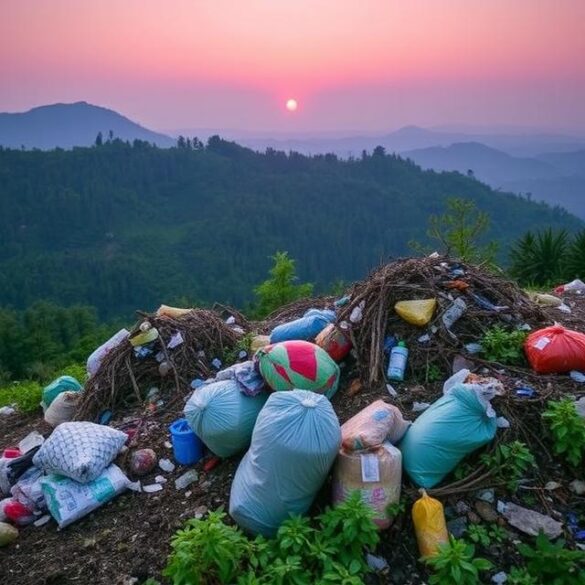A Growing Focus on Waste Management
In recent decades, developing nations waste management efforts have become increasingly important, not just for local environmental health but also in the global economic conservation. Waste generation without borders increases demand in rapidly growing urban and human populations, pushing such areas towards developing sustainable and scalable waste solutions. Astoundingly, many of these countries are, in fact, pioneering innovations and resilience in community applications of systems and technology partnerships based on low-cost strategies today.
While their resources are limited compared to economic world powers, their adaptive strategies, especially in plastic recycling, landfill alternatives, and waste-to-energy technologies are gradually shifting global waste management standards.
Transforming Challenges into Economic Opportunities
Developing nations waste management is no longer viewed purely as a burden. Many of these countries are turning the problems into economic opportunity. By establishing informal recycling economies, developing nations have employed thousands in waste collection, sorting, and recycling, contributing significantly to job creation and urban cleanliness.
For example, India and Kenya could be cited as case studies where localization is taking monetization of waste streams nearer to the context of landfill dependency for start-ups, partnerships, and governments. These initiatives make an international spectacle of attention and investment, giving slight developing nations a fighting chance against traditional models used by economic world powers, who remain bogged down in archaic models driven very much with automation and centralization.
Technology Transfer Along with Grassroots Innovation
At an individual level, the economic world power takes the command in research and financing, but the developing countries are greatly influenced by the innovations that take place within their states based on their need to sort out waste management. Grassroots models such as decentralized composting hubs, mobile waste apps, and waste sorting cooperatives are sprouting alive in Bangladesh, Philippines, and Rwanda.
Blockchain technology to track recyclables. Some of them also have AI-driven sorting systems from emerging global technology hubs. This “grassroots-high-tech” dichotomy allows developing countries to leapfrog old methods and custom-build solutions in waste ready for the future.
International Collaboration Policy Push
The role of international policies and policy support from organizations like the UN and World Bank has helped scale developing nations waste management programs. Such funding guarantees that the program will not fail at the drawing board. Vietnam and Indonesia have made such commitments and signed international waste alliances to half ocean plastic pollution within a decade.
Because of this commitment to the drafting of global waste policies, developing nations acquire potential space as equal players, thereby prodding the economic world powers toward their ascendance. Thus is merit achieved against less-than-open yet sturdy barriers; those days when the developing world sat passively, arms crossed, before solutions thrown toward it, are over now; it actively shapes the future of environmental accountability.

How Developing Nations Tackle Waste and Challenge Economic Powers
Environmental Justice and International Recognition
Environmental justice campaigns by developing nations now gather momentum with their argument that, for too long, the richest countries have outsourced their waste to the poorer countries. Now, stricter rules and stronger environmental laws encourage these nations to take back their ecosystems.
The watershed came with the announcement made by China in 2018 that it would halt importing waste. Very soon afterward, other nations hopped on China’s bandwagon and proclaimed themselves waste importers lending their territories to the developed world as dump sites. Such brave steps could now interpret new meanings into the global waste economy and signify leadership that developing countries waste management take in determining global sustainability.
Resilience in the Face of Climate Change
It is through these integration policies of waste and climate approaches-such as green buffers, biofuels, and circularity, where waste is reused to make building materials, roads, or even clothes-that most developing countries are now increasing their relevance to climate change, manifested in exacerbating waste-related problems, a majority being coastal and flooding-prone areas.
This kind of creativity throws many into the world arena. While the economic world powers would argue at the higher forum for solutions, developing nations waste management is an exhibit of the actual interventions, mobilization of communities, and impacts on the environment that all put pressure on the global narrative.
Developing nations waste management is reshaping the global approach to sustainability, influencing even the economic world powers through innovation.



